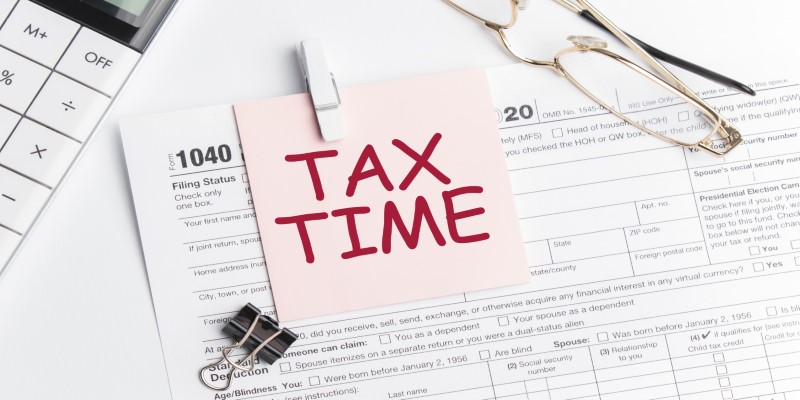The Complete Guide to Understanding (IUL): What Every Investor Should Know
May 18, 2024 By Triston Martin
Indexed Universal Life Insurance (IUL) has been making waves in the insurance world, offering a unique blend of flexibility and growth potential. But what exactly are IULs, and how do they work? Let's dive into the depths of this intriguing insurance product.
What Are Indexed Universal Life Insurance (IUL) Policies?
A kind of permanent life insurance policy that provides both a death benefit and a cash value component is called Indexed Universal Life Insurance, or IUL for short. IULs link the growth of the cash value to the performance of an index of stocks, like the S&P 500, as opposed to typical whole life insurance,
which offers a fixed interest rate on the cash value.
How Do IULs Work?
The insurance portion and the cash value portion are the two main components of premium allocation for IUL contracts. While the cash value half collects money that may increase in value over time, the insurance portion pays for administrative costs and insurance premiums.
Unlike ordinary universal life plans, which offer a fixed interest rate, index-linked universal life insurance (IUL) credit interest is based on the performance of a chosen stock market index. This makes IULs unique from other types of life insurance. This implies that the policy's cash value may increase more dramatically when the index performs well. To guard against losses, there is usually a minimum guaranteed interest rate in place if the index performs poorly.
Benefits of Indexed Universal Life Insurance
Indexed Universal Life Insurance (IUL) policies are a desirable choice for many people due to their array of benefits. Let's delve deeper into these advantages:
Flexibility
One of the most significant benefits of IULs is their flexibility. Unlike traditional life insurance policies, which often have fixed premiums and death benefits, IULs allow policyholders to adjust these components over time to align with their changing financial circumstances.

For example, if your income fluctuates or you experience unexpected expenses, you can lower your premium payments or adjust your death benefit to accommodate these changes. This flexibility ensures that your insurance coverage remains tailored to your needs, providing peace of mind as you navigate life's uncertainties.
Cash Value Growth Potential
Another key advantage of IULs is their potential for cash value growth. Unlike traditional whole-life policies, which typically offer fixed interest rates on the cash value component, IULs tie the growth of cash value to the performance of a stock market index, such as the S&P 500.
This means that when the index performs well, the cash value of your policy has the potential to grow more rapidly. This increase has the potential to compound over time, giving you access to a valuable asset that you can use to meet a variety of financial demands, like funding retirement or covering college costs.
Tax Advantages
Index-indexed universal life insurance also offers certain tax benefits, which can increase the overall value of the policy. Tax-deferred growth, which means you won't have to pay taxes on the growth of your cash value until you withdraw funds from the policy, is one important advantage.
In addition, policy loanswhich are normally tax-free as long as the policy is in effectallow policyholders to access the cash value. Because it gives you access to funds without incurring taxes, this tax-free access to funds can be very helpful when you're in a tight spot financially.
Furthermore, if structured correctly, the death benefit of an IUL policy can be received by beneficiaries income tax-free, providing a valuable source of financial protection for your loved ones.
Estate Planning Opportunities
IULs can be very important in estate planning in addition to the immediate benefits of flexibility, cash value growth, and tax savings. Your possessions will be transferred to your beneficiaries free of needless financial constraints when you use the death benefit from an IUL policy to pay estate taxes.
Moreover, you can make a lasting effect on the financial security of your family by designing an IUL to leave a legacy for future generations. You can leave a legacy that will support your loved ones for many years to come by carefully arranging how the death benefit from your insurance is distributed.
Drawbacks of Indexed Universal Life Insurance
While IULs offer several benefits, they also come with some drawbacks that potential policyholders should consider:
Complexity
IULs can be complex financial products with various features and options that may be difficult for some individuals to understand. Policyholders should carefully review the policy's terms and conditions to ensure they fully comprehend how it works and what fees are involved.

Market Risk
Although IULs offer the potential for cash value growth linked to the performance of a stock market index, they also expose policyholders to market risk. If the chosen index performs poorly, the cash value growth may be limited, potentially impacting the policy's overall performance.
Cost
IULs can be more expensive than other types of life insurance policies, particularly in the early years of the policy. Policyholders should be aware of the various fees associated with IULs, including insurance costs, administrative fees, and surrender charges.
Is Indexed Universal Life Insurance Right for You?
Ultimately, whether indexed universal life insurance is the right choice for you depends on your individual financial goals, risk tolerance, and insurance needs. Before purchasing an IUL policy, consider consulting with a financial advisor or insurance professional who can help you evaluate your options and determine the best course of action for your specific circumstances.
Conclusion
Indexed Universal Life Insurance (IUL) policies offer a unique combination of flexibility, growth potential, and tax advantages. By tying the cash value growth to the performance of a stock market index, IULs provide policyholders with the opportunity to benefit from potential market gains while offering downside protection through minimum guaranteed interest rates.
IULs do have several disadvantages, though, like cost, market risk, and complexity. It's important to thoroughly assess your insurance needs and financial goals before acquiring an IUL coverage, as well as the costs and dangers involved.
In conclusion, IULs can be a valuable tool for individuals looking for customizable insurance coverage with the potential for cash value growth. With proper planning and guidance, IULs can help policyholders secure their financial future while providing peace of mind for themselves and their loved ones.








